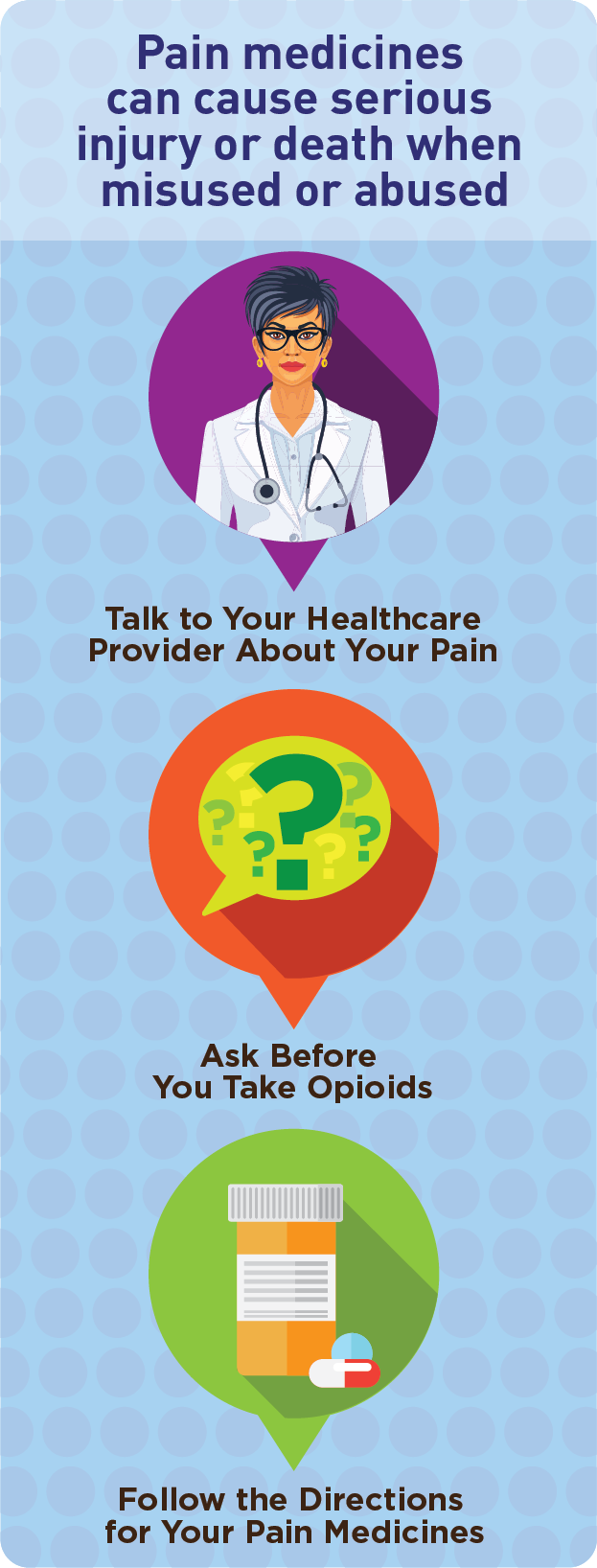RT
: True! Women are also more likely to be prescribed prescription pain medicines, be given higher doses & use them for longer periods of time than men. Talk to your health care provider about your pain & learn more about safe #PainManagement: go.usa.gov/xV4Zz
Women and Pain Medicines

Pain medicines can be effective in reducing pain when used as directed. However, these medicines can also cause serious injury or death when misused or abused. They can also be addictive. It is important to talk to your healthcare provider about how to safely use pain medicines. Also, ask your healthcare provider about other options to treat pain.
Women experience pain differently than men
- Women report more pain than men.
- Some types of long-term (chronic) pain, like migraines and back pain, are more common in women.
- Women may become dependent on prescription pain medicines more quickly than men.
- Women are more likely to be prescribed prescription pain medicines, be given higher doses, and use them for longer time periods than men.
Types of Pain Medicines
Over-the-Counter (OTC) Medicines
OTC pain medicines are in many common products for headaches, colds, and menstrual (period) cramps. Common types of OTC pain medicines are acetaminophen and NSAIDs (Nonsteroidal Anti-Inflammatory Drugs), such as aspirin and low-dose ibuprofen.
Prescription Medicines
- Non-opioid medicines – Medicines that treat pain. Types of non-opioid prescription medicines include diclofenac and ibuprofen. While ibuprofen is also available over-the-counter, your healthcare provider may give you higher doses.
- Opioids – Medicines that may be effective for reducing moderate to severe pain, like after a surgery. Common opioids include oxycodone, hydrocodone, fentanyl, and morphine.
Take steps to protect yourself and your loved ones.
- Ask your healthcare provider if you should take opioids or use other options to effectively manage your pain. Opioids are not right for everyone or every type of pain.
- Keep track of your pain. Make note when you feel pain, what it feels like, and where your body hurts. Share these notes with your healthcare provider.
- Don’t share prescription pain medicines. Keep pain medicines locked up and away from children and others.
- Don’t take pain medicines for longer than you are supposed to. Get the facts about your medicine. Find out how long you should take it. If you are taking other medications, ask your healthcare provider if pain medications are safe to take at the same time.
- Don’t drink alcohol or use medicines like antihistamines and benzodiazepines when you take certain pain medicines. Combining alcohol and different types of pain medicines or other drugs can cause you to stop breathing.
- Tell your healthcare provider if you have been addicted to medications, other drugs, or alcohol.
- Get rid of unused prescription pain medicines. Check the FDA website or ask your healthcare provider about the best way to get rid of unused medication.
- Call 1-800-662-HELP (4357) or visit https://findtreatment.samhsa.gov/ if you or a loved one needs help finding treatment for addiction to pain medicines.


































No hay comentarios:
Publicar un comentario